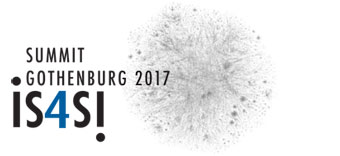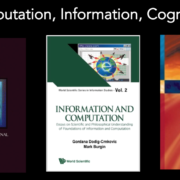The digital revolution and society’s needs
In the light of an envisioned Internet of Things and Ambient Intelligence the concepts of the Factory of the Future of the eighties of the last century have been overhauled. Industry 4.0 is the new buzzword. It depicts the kernel of current digitalisation programmes in a globalising world.
The next summit of the International Society for Information Studies is about digitalisation from a trans-disciplinary perspective. From such a perspective the relationship between technology and society needs to be addressed.
We did so already at our first summit in Vienna 2015. Have a look at our book “The Future Information Society – Social and Technological Problems”, one of two edited volumes with contributions revolving around topics discussed there (see here).
Why is that important? Because the digital revolution needs to be shaped according to the humane values of a global sustainable information society, that is, according to a peaceful, environmentally sound and socially and economically just and inclusive world society.
After the latest “eupinions” study of the Bertelsmann Stiftung on public opinion and the populist vote in Europe (see here), low-income, low-level-education and aged people – who do not benefit from globalisation but are left behind – are more likely to fall prey to the populism of far right parties because of fear of the future. In the public discourse, there seems to be as much fear about robots killing jobs as about migrants scrounging social welfare.
If technological progress will not be embedded in social progress, the swing to the right will be facilitated. And let me add a personal note: I’m Austrian and I know what I’m talking of.
Rather unnoticed from international media an event took place recently in Vienna. The leaders of the Social Democratic parties as well as trade unions of Sweden – Stefan Löfven who is prime minister and Karl-Petter Thorwaldson –, of Germany – Sigmar Gabriel who is vice chancellor and Reiner Hoffmann – and of Austria – Christian Kern who is chancellor and Erich Foglar – met in Vienna. They presented a so-called European Pact for Social Progress “to win back people’s trust” (see here): “It is time for Europe to change the course.” Point 9 of 10 is about “Digitalization and the future of work”: “The EU need to create an agenda that turns the digital driven change into a process that empowers workers and citizens and increases social cohesion and inclusiveness in the European social model.”
I feel it is our duty as academics, as citizens, as world citizens, to support initiatives like that – not only in Europe but anywhere. The Gothenburg summit will be a place where we can deliberate upon how science can meet social needs.
Wolfgang Hofkirchner, Past President, International Society for Information Studies; President, Bertalanffy Center for the Study of Systems Science










